Join our list
Subscribe to our mailing list and get interesting stuff and updates to your email inbox.
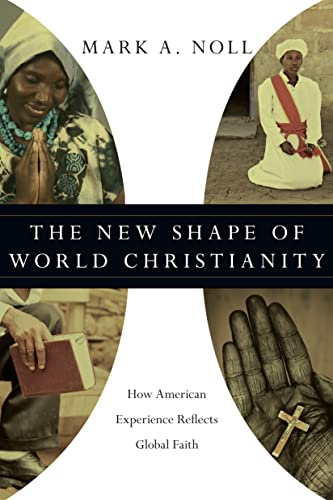 Author(s): Mark Noll
Author(s): Mark NollPublisher: IVP Academic
Price: $2.99 (Feb 24-25)
2010 Christianity Today Book Award winner
With characteristic rigor and insight, in this book Mark Noll revisits the history of the American church in the context of world events. He makes the compelling case that how Americans have come to practice the Christian faith is just as globally important as what the American church has done in the world. Noll backs up this substantial claim with the scholarly attentiveness we’ve come to expect from him, lucidly explaining the relationship between the development of Christianity in North America and the development of Christianity in the rest of the world, with attention to recent transfigurations in world Christianity. Here is a book that will challenge your assumptions about the nature of the relationship between the American church and the global church in the past and predict what world Christianity may look like.
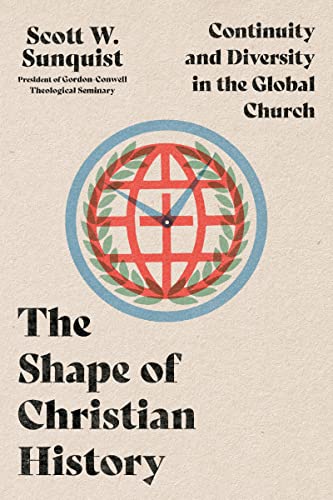 Author(s): Scott Sunquist
Author(s): Scott SunquistPublisher: IVP Academic
Price: $2.99 (Feb 17-18)
While understanding history has always been an essential task for God’s people, rapid changes within the past two generations of Christianity have challenged many of our assumptions and methods for studying the past. How should thoughtful Christians—and especially historians and missiologists—make sense of global Christianity as an unfolding historical movement?
Scott Sunquist invites readers to join him for a capstone course in historical thinking from a master teacher. Highlighting both the continuity and the diversity within the Christian movement over the centuries, he identifies three key concepts for framing church history: time, cross, and glory. These themes shed light to help us discern how the Jesus movement developed from the first century to the present, through an explosion of contextual expressions. Tracing these concepts through the centuries, we learn from the stories of Christians reflecting the glories of God’s kingdom—and from their failures.
 Author(s): Arthur Holmes
Author(s): Arthur HolmesPublisher: IVP Academic
Price: $2.99 (Feb 10-11)
With over 60,000 copies in print since its original publication in 1984, Ethics has served numerous generations of students as a classic introduction to philosophical ethics from a Christian perspective. Over the years the philosophical landscape has changed somewhat, and in this new edition Arthur Holmes adjusts the argument and information throughout, completely rewriting the earlier chapter on virtue ethics and adding a new chapter on the moral agent. The book addresses the questions: What is good? What is right? How can we know? In doing so it also surveys a variety of approaches to ethics, including cultural relativism, emotivism, ethical egoism and utilitarianism–all with an acknowledgment of the new postmodern environment.
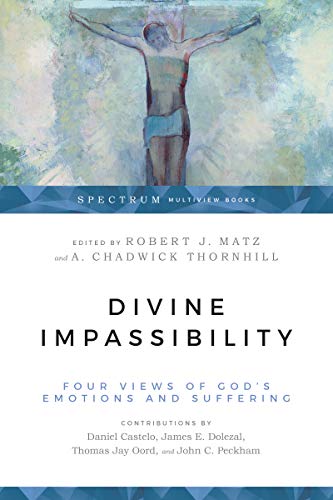 Author(s): Thomas Jay Oord
Author(s): Thomas Jay OordPublisher: IVP Academic
Price: $2.99 (Feb 3-4)
Does God suffer? Does God experience emotions? Does God change? How should we interpret passages of Scripture that seem to support one view or the other? And where do the incarnation and Christ’s suffering on the cross fit into this?
This Spectrum Multiview volume brings together four theologians with decidedly different answers to these questions. The contributors make a case for their own view—ranging from a traditional affirmation of divine impassibility (the idea that God does not suffer) to the position that God is necessarily and intimately affected by creation—and then each contributor responds to the others’ views.
The lively but irenic discussion that takes place in this conversation demonstrates not only the diversity of opinion among Christians on this theological conundrum but also its ongoing relevance for today.
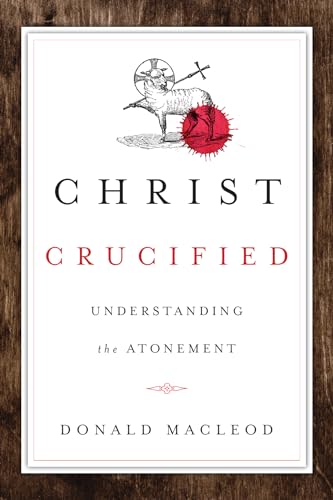 Author(s): Donald MacLeod
Author(s): Donald MacLeodPublisher: IVP Academic
Price: $2.99 (Jan 27-28)
How could the life, let alone the death, of one man 2,000 years ago be the salvation of the human race? The biblical explanation is the atonement: the crucified one was the Son of God, acting and suffering in cooperation with God the Father and God the Holy Spirit. The crucifixion of Jesus Christ is presented in all four Gospels, and occupies considerable space in the overall narrative. The death of this one person has universal, inclusive and cosmic significance, because in him the Creator acts and suffers. This is the primary answer to “the scandal of particularity.” There is also a special relationship between Christ and humanity—he was with us, and he was for us. The grandeur of the cross lies in the fact that the incarnate Son of God offered himself in our place, bearing the penalty for our sin. Donald Macleod considers seven key words Christians have used through the centuries to describe what happened on the cross: substitution, expiation, propitiation, reconciliation, satisfaction, redemption and victory. No single one of these tells the whole truth, nor do all of them together exhaust the meaning of the cross. Macleod shows that these concepts are interrelated and interdependent, and that together they give a coherent picture of the salvation wrought by Jesus at Calvary.
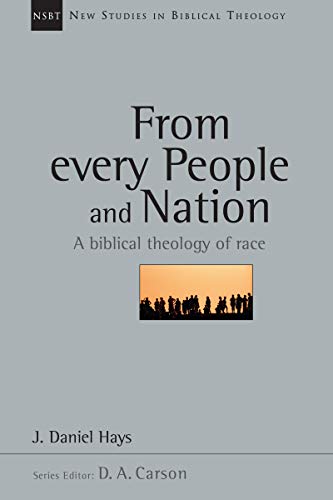 Author(s): J. Daniel Hays
Author(s): J. Daniel HaysPublisher: IVP Academic
Price: $2.99 (Nov 11-12)
“After this I looked and there before me was a great multitude that no one could count, from every nation, tribe, people and language . . .” (Revelation 7:9).The visions in the book of Revelation give a glimpse of the people of God at the consummation of history—a multiethnic congregation gathered together in worship around God’s throne. Its racial diversity is expressed in a fourfold formula that first appears in Genesis 10.The theme of race runs throughout Scripture, constantly pointing to the global and multiethnic dimensions inherent in the overarching plan of God. In response to the neglect of this theme in much evangelical biblical scholarship, J. Daniel Hays offers this thorough exegetical work in the New Studies in Biblical Theology series. As well as focusing on texts which have a general bearing on race, Hays demonstrates that black Africans from Cush (Ethiopia) play an important role in both Old and New Testament history.This careful, nuanced analysis provides a clear theological foundation for life in contemporary multiracial cultures and challenges churches to pursue racial unity in Christ.Addressing key issues in biblical theology, the works comprising New Studies in Biblical Theology are creative attempts to help Christians better understand their Bibles. The NSBT series is edited by D. A. Carson, aiming to simultaneously instruct and to edify, to interact with current scholarship and to point the way ahead.
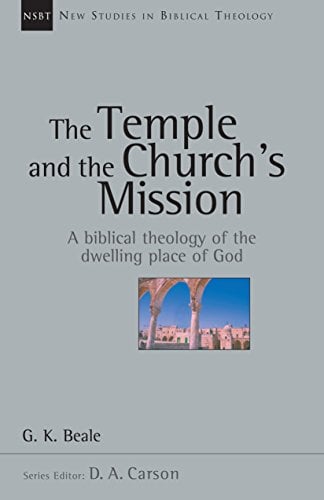 Author(s): G. K. Beale
Author(s): G. K. BealePublisher: IVP Academic
Price: $2.99 (Nov 4-5)
“Then I saw a new heaven and a new earth. . . . And I saw the holy city, new Jerusalem. . . . And I heard a loud voice from the throne saying, ?Behold, the dwelling place of God is with man.” (Revelation 21:1-3, ESV).In this comprehensive study, a New Studies in Biblical Theology volume, G. K. Beale argues that the Old Testament tabernacle and temples were symbolically designed to point to the end-time reality that God’s presence, formerly limited to the Holy of Holies, would be extended throughout the cosmos. Hence, John’s vision in Revelation 21 is best understood as picturing the new heavens and earth as the eschatological temple.Beale’s stimulating exposition traces the theme of the tabernacle and temple across the Bible’s story-line, illuminating many texts and closely-related themes along the way. He shows how the significance and symbolism of the temple can be better understood in the context of ancient Near Eastern assumptions, and offers new insights into the meaning of the temple in both Old and New Testaments.Addressing key issues in biblical theology, the works comprising New Studies in Biblical Theology are creative attempts to help Christians better understand their Bibles. The NSBT series is edited by D. A. Carson, aiming to simultaneously instruct and to edify, to interact with current scholarship and to point the way ahead.


